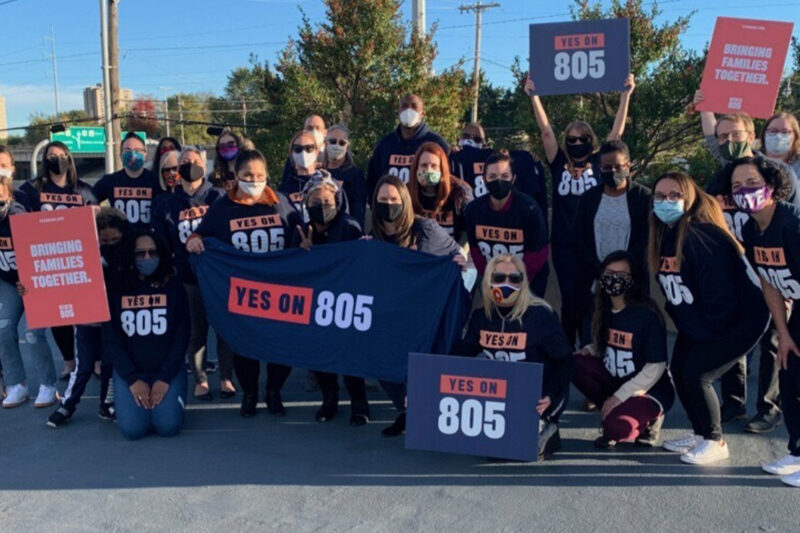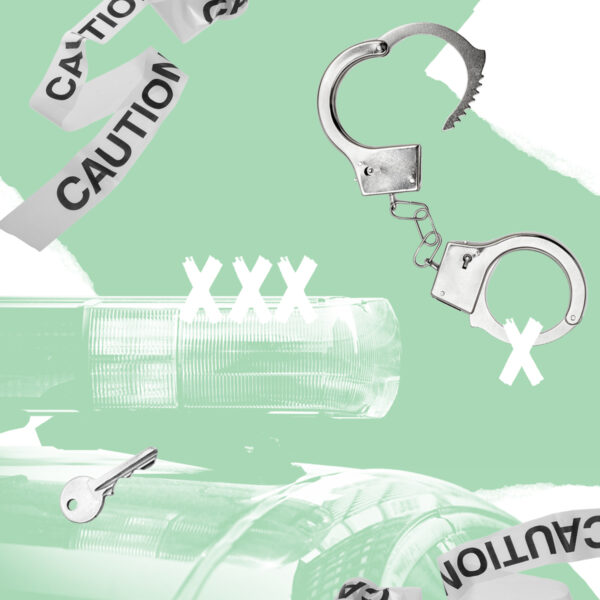What State Question 805 Has Already Won


Oklahoma is a study in the contradictions of criminal justice reform. While the state is the world’s leading incarcerator, it is also a criminal justice reform success story. That paradox is mirrored in State Question 805 — on the ballot this November — which is both a modest criminal sentencing reform, and is precipitating transformative political and cultural change in Oklahoma’s reform movement.
Four years ago, as the state’s incarceration crisis reached new peaks, voters passed a ballot initiative that shortened prison sentences for property and drug-related crimes. Since that time, Oklahoma has seen prison populations decline by about 20 percent while crime has also steadily decreased by about 5.5 percent.
In response, a small but politically powerful group of prosecutors and other tough-on-crime truthers have aggressively tried to roll back reforms year-after-year, grinding the legislative progress to a crawl. The near stalemate has left thousands of people languishing in Oklahoma’s prisons with decades-long prison sentences — including world-leading rates of women who are incarcerated — while costing the state half a billion dollars on prisons every year.
Against this backdrop, conservative and progressive supporters formed a new coalition, even larger and more diverse than the coalition formed in 2016, to put State Question 805 on the ballot this November. That initiative is a limited roll-back of a form of extreme incarceration called “enhanced” sentencing, which would save the state about $200 million and shorten sentences for nonviolent crimes.
Enhanced sentencing is tough-on-crime snake oil sold alongside the mandatory minimums and three strikes laws that proliferated in the 1990s. These policies were pushed on states through political fear mongering with no underlying evidence they would improve safety.
When an enhanced sentence is triggered by a single previous conviction, decades or even life in prison is automatically stacked on top of already-long maximum prison sentences. This practice resulted in severely punitive, dehumanizing, and outrageously expensive sentences for minor things like selling small amounts of marijuana or stealing a pair of hedge clippers. Fast forward to the present, and many other states have since repealed or rolled back these policies, recognizing them as wasteful failures.
Narrowing the practice of enhanced sentencing to only violent crimes — the goal of State Question 805 — may seem like a no-brainer. But the fight over 805 has been fierce. Opponents are engaged in ugly, fear-mongering messaging that would make even the architect of the Willie Horton ad blush. Some domestic violence survivors and advocates, failed by the criminal justice system for decades and offered little but incarceration in response, have expressed concern about ending enhanced sentencing for a few crimes related to domestic violence. (The most serious crimes related to domestic violence are unaffected by the initiative.)
As Election Day draws near, an unprecedented conversation is unfolding in Oklahoma. It’s a deeper dialogue about criminal justice that has never occurred in the state before. It is happening directly with Oklahoma voters at Rotary Clubs, editorial boards, sorority events, campaign rallies, and in TV debates.
By the end of this pandemic-inflected campaign, Yes on 805 campaign staff and volunteers will have had nearly two million conversations with voters over the phone and by text. This includes hundreds of thousands of conversations with voters who were initially skeptical about 805 — sometimes deeply so — and we have changed their perspectives and their vote.
We are going farther than conversations about criminal justice reform that just skim the surface. We are talking about why decades-long sentences are ineffective and unjust, even for more complex cases.
For weeks, we have been having conversations with voters every day about why and how we can still hold people accountable without sending them to prison for decades. We’ve pointed voters to the growing number of Oklahoma police chiefs, prosecutors, and judges who have pulled back the veil on the not-so-well-kept secret that extremely long prison sentences do not improve safety.
We’ve talked to voters about the power of redemption and second chances for people who are incarcerated and their loved ones, who are disproportionately from Oklahoma’s Black communities. We’ve told voters about the domestic violence survivors that support the ballot initiative and who know that we cannot incarcerate our way out of domestic violence.
Of course, we don’t convince everyone we speak with to vote yes. The plain truth is that the fearful, scary, and outright dishonest messages from those defending the status quo are powerful. But every conversation is another chance to expand thinking and change culture and we are doing it, inch-by-inch. That is a shift that will last well beyond Election Day, win or lose.
If Oklahoma is ever going to permanently shed the title of world’s leading incarcerator, it will have to go beyond minimal, less controversial reforms and permanently close the book on tough-on-crime dogma. State Question 805 has already achieved success by opening up an entirely new chapter in Oklahoma’s long journey toward ending mass incarceration.


